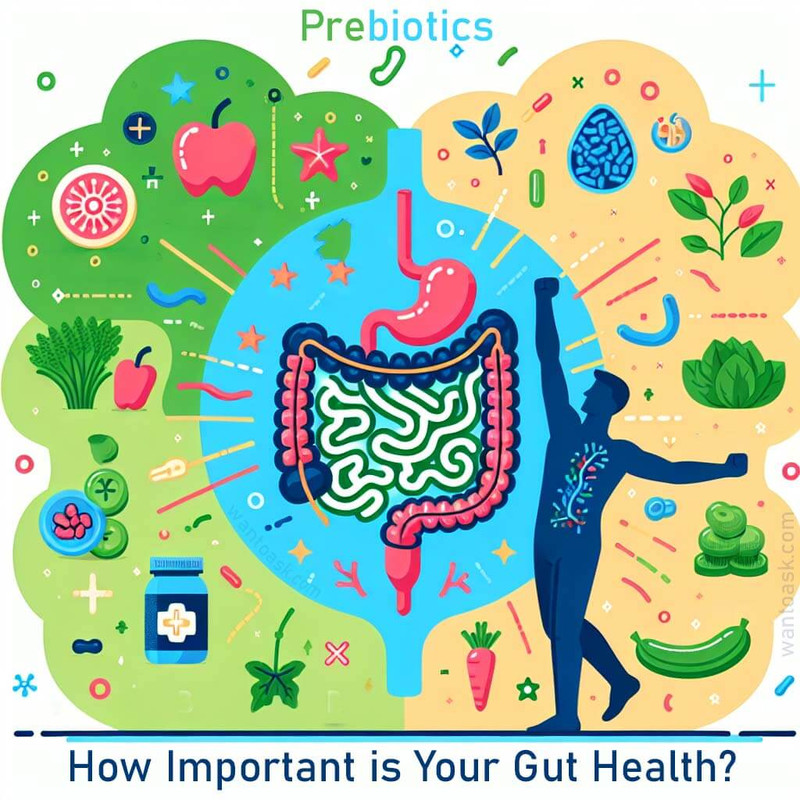
The Importance of Gut Health
As we grow older and wiser, we start to realize more and more that our health is our most prized possession. Among the various aspects of health, gut health, in particular, has come under increasing focus in recent years, and for good reasons. The gut, or our digestive system, plays a crucial role in not just our physical health but also our mental well-being. So, let's delve deeper into understanding why gut health is so important.
1. Gut Health: An Overview
The gut is a complex system that includes our mouth, esophagus, stomach, and intestines. Its role involves the digestion of food, the absorption of nutrients, and the expulsion of waste products. Furthermore, the gut is home to a diverse community of microorganisms, collectively known as the gut microbiota. This includes bacteria, yeasts, and viruses, each playing an essential role in maintaining optimal health.
2. Gut Health and Nutrient Absorption
One of the most direct ways gut health impacts our overall health is through nutrient absorption. A healthy gut efficiently breaks down the food we consume, allowing the body to absorb vitamins, minerals, and other essential nutrients. This process supports various bodily functions, from energy production to immune system functioning, highlighting why maintaining a healthy gut is crucial for our overall well-being.
3. Gut Health and Immunity
Did you know that nearly 70% of our immune cells reside in our gut? Yes, it's true. Our gut health plays a pivotal role in our body's immune response. A healthy gut microbiota helps regulate our immune system, protecting us from harmful pathogens and reducing the risk of infections and diseases.
4. Gut Health and Mental Well-being
Recent research has unveiled a fascinating connection between our gut and brain, often referred to as the 'gut-brain axis'. This means that our gut health can significantly influence our mental health. Studies have shown that an imbalance in our gut microbiota can lead to an increased risk of mental health disorders, including anxiety and depression. Hence, caring for our gut health is also a way of caring for our mental well-being.
5. Gut Health and Weight Management
Our gut microbiota also plays a crucial role in our body's metabolism and can influence our weight. Research has shown that an imbalanced gut microbiota can contribute to obesity and metabolic disorders. Thus, maintaining a healthy gut can support healthy weight management and lower the risk of related health issues.
The Crucial Role of Prebiotics in Gut Health
As we age and become more health-conscious, we often hear about the importance of gut health and the role of probiotics. However, an equally important aspect of gut health that is often overlooked is the role of prebiotics. Prebiotics are non-digestible food components that selectively stimulate the growth or activity of beneficial microorganisms in our gut, playing a crucial role in maintaining healthy gut microbiota.
1. Prebiotics: Fuel for Our Gut Microbiota
Prebiotics function as 'title tags' or identifiers for our gut microbiota, signaling which nutrients are available for consumption. They are essentially the food that our gut bacteria need to thrive. By consuming prebiotic-rich foods, we can help maintain a healthy balance of gut bacteria, which is essential for our overall health.
2. Prebiotics and Nutrient Absorption
Prebiotics play a significant role in nutrient absorption. They help stimulate the growth of beneficial bacteria in our gut, which in turn aids in the digestion and absorption of nutrients from the food we eat. This process is crucial for our body to function optimally, highlighting the importance of prebiotics in our diet.
3. Prebiotics and Immunity
The health of our immune system is intimately connected to the state of our gut. A healthy gut microbiota, supported by prebiotics, helps regulate our immune response, protecting us from harmful pathogens and reducing the risk of infections and diseases. By consuming a diet rich in prebiotics, we can help strengthen our immune system and enhance our body's ability to fight off illnesses.
4. Prebiotics and Mental Well-being
The connection between our gut and brain, often referred to as the 'gut-brain axis', is another area where prebiotics plays a crucial role. Studies have shown that a balanced gut microbiota, supported by prebiotics, can have a positive impact on our mental health, reducing the risk of mental health disorders such as anxiety and depression.
5. Prebiotics and Weight Management
Prebiotics also play a role in weight management. They help maintain a balanced gut microbiota, which is known to influence our body's metabolism and can affect our weight. Consuming a diet rich in prebiotics can therefore support healthy weight management and lower the risk of obesity and related health issues.
Conclusion: Prioritize Your Gut Health
In conclusion, gut health holds a paramount importance in preserving our overall health and well-being. From nutrient absorption and immunity to mental health and weight management, a healthy gut contributes significantly to various aspects of our health. As we continue on our journey towards health consciousness, let's remember to nourish our gut and cherish it as an integral part of our well-being. After all, a healthy gut is indeed a cornerstone of a healthy life. So, prioritize your gut health, and your body will thank you for it.